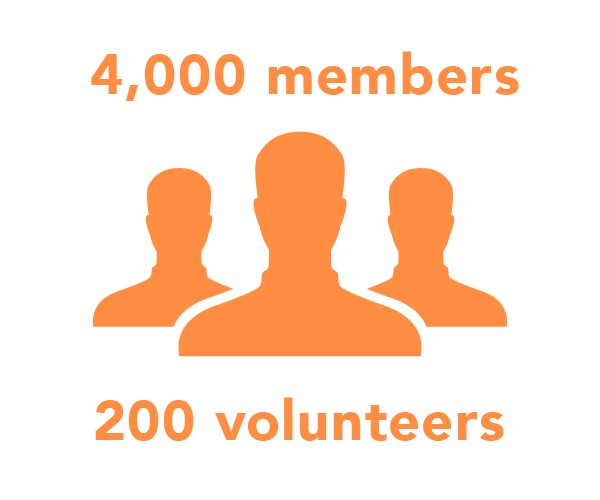Finger Lakes Land Trust Policy Statement Regarding Public Use and Recreational Activities on Nature Preserve Properties.
The Finger Lakes Land Trust is pleased to be able to offer the public the opportunity to visit more than 40 nature preserves and conservation areas around the Finger Lakes region — many of which feature maintained hiking trails, kiosks with interpretive information, waterfalls and other unique features, important ecological communities, and an abundance of scenery and wildlife to enjoy.
It is critical for the future of these special places that visitors minimize their impact on the land and help to maintain the integrity of the natural features that we and our supporters have worked so hard to protect for the benefit of the region’s residents, visitors, and future generations. To do this, we ask that visitors to Land Trust preserves and conservation areas abide by the following recreational use policies.
Policies
The public is welcome to engage in quiet, unobtrusive nature observation and low impact recreational activities such as walking, hiking, snowshoeing, and cross-country skiing. Please stay on marked trails, where they exist, to minimize disturbance of native plants and wildlife, and to avoid hazards.
Open hours are dawn to dusk (except by written permission of the Land Trust).
Activities that are PROHIBITED on all Land Trust lands include:
- Use of motorized vehicles (except parking in designated parking areas);
- Use of remote-controlled vehicles (including drones);
- Riding bicycles, horses, or any other mechanical devices or animals;
- Animal trapping and small-game hunting;
- Target shooting or paintball shooting;
- Camping and fires;
- Swimming;
- Collecting of any sort (except by research permit);
- Rock stacking or cairn building;
- Vandalism of signs, kiosks, parking areas or other improvements, or causing damage to plants or other natural or historic features;
- Possession or use of alcohol or drugs;
- Littering, dumping, placement/storage of personal property , or release of any plants, animals, substances, or materials.
Activities that are NOT generally allowed, but MAY have limited exceptions or be permitted with explicit Land Trust permission on certain preserves, include:
- Deer hunting (by permit only, in accordance with the FLLT Deer Management Program) – See our Hunting Policies page
- Visitation by large organized groups;
- Scientific research or collecting (by permit);
- Geocaching (by permit);
- Fishing; climbing; or any other recreational activity or property use not listed above.
Dogs must always be kept in full control by their owners, and must not be allowed to chase wildlife or intimidate other visitors. Dogs must be kept on leashes at all times at certain preserves where posted.
Always be aware of potential hazards such as: dead trees, hanging trees or branches, cliffs, steep slopes, loose or slippery shale, rocks or other unstable footing, thin ice, old wire or building remains, plants with thorns or toxins (such as poison ivy), ticks, and stinging insects.
Be prepared for the outdoors: bring a map and compass; carry sufficient water and food; wear footwear and clothing appropriate for the terrain and weather conditions; wear blaze orange during hunting seasons.
Always be mindful and respectful of any special conditions, restrictions, or notices that are posted at specific preserves. Some Land Trust preserves are closed to the public during deer hunting seasons.
Always strive to have as little impact on the preserves as possible; learn about and practice Leave No Trace principles; and be respectful of the land, native plants and animals, and other people.
Contact the Land Trust to report problems, provide management suggestions, offer to volunteer, or make a donation to support our work!
[Last Revised July 2016]

